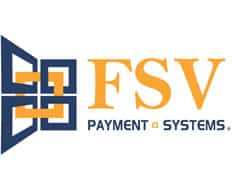

FSV Payment Systems helps businesses save money and time by putting payroll funds directly onto a prepaid card rather than issuing a paper check. Employees can use the card the minute the funds are disbursed. They don’t need to cash a check or have a checking account, which is good news for employers of quick-serve personnel, who are often “under-banked,” according to George Sanchez, SVP, sales director.
“I met one worker at a quick-serve and asked her what it took to cash her check, which was always issued on her day off,” says Sanchez. “She had to catch two buses to work, and another bus to a check-cashing store, which charged her two percent of her pay for that service. She then took a bus to a business where she could transfer money to her family, another bus to the grocery store to do her shopping, then her bus home. It took her six hours. I asked how she would feel about simply using her automatically loaded pay card to buy groceries, transfer her money online, with no check cashing fees, no buses, no waiting. Of course she loved the idea.”
That is what FSV’s pay card does for employees.
“FSV was recently acquired by U.S. Bank, but we’ve been around for 12 years. We built our system from the ground up, and we are both the card processor and the program manager. We act as product development and the research and development department for clients,” says Sanchez.
“The landscape for prepaid cards has changed over the past decade. This is a mainstream product. All the industry leaders use pay cards. There are laws on the books addressing electronic funds payments and pay cards specifically. In fact, most states use cards to disperse unemployment and other benefits. The world has changed,” says Sanchez.
“The industry is growing at a 30 percent rate, and the quick-service channel is growing even faster,” says George Coutros, EVP, business development.
And while the history of FSV’s growth has been with the big players in the quick-service sector, including McDonald’s (the company works with 20 of the top 50 quick-serve concepts), the company can provide single-store operators with all the benefits any multiunit operator has.
Benefits to employers are impressive. Industry estimates say it costs an employer an average of $2.87 to $3.15 to process each payroll check. Sanchez, who thinks that may be high for large chains, says even if it’s as little as 80 cents to $1 per check, costs add up fast.
“The savings of using a pay card versus a paper check are astounding from both a time management and a financial perspective,” Sanchez says. “A manager no longer needs to stop work to find and hand out checks to employees or pay for printing, stuffing, mailing and sorting paper checks.”
Benefits to employees are just as impressive. “It can be a lower cost alternative to a checking account, and while some fees may apply, many employees use the card without incurring any fees at all,” says Coutros. “Employees may be able to avoid checking account fees and check cashing fees, and they can still transfer funds. The card even has an interest-bearing savings feature.”
To get FSV into employees’ hands, the company rolls out the program as an electronic pay program, offering pay cards as an option. FSV sees a 95 to 98 percent electronic pay adoption rate, thanks to its employer training process.
“We have invested a lot of time, money, and energy into focusing on the quick-serve industry,” says Sanchez. “Developing that industry is a large part of our strategy for 2013.”
For more information about franchising opportunities with FSV Payment System, visit www.fsvps.com
